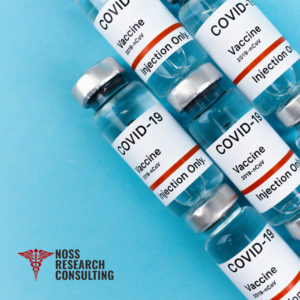
As the fight against COVID-19 continues, the efficacy and safety of vaccines remain critical considerations. Recent studies shed light on both fronts, offering valuable insights into vaccine effectiveness and potential adverse events.
Vaccine Effectiveness in Preventing Symptomatic Infections
The latest versions of COVID-19 vaccines have shown promising results, with a 54% effectiveness rate in preventing symptomatic infections among adults. This finding, from the first US study assessing vaccine performance, underscores the importance of ongoing vaccination efforts.
These newer vaccine formulations, designed to provide enhanced protection against emerging coronavirus variants, were evaluated in a study conducted by the Centers for Disease Control and Prevention (CDC). Analyzing data from over 9,000 individuals tested for COVID-19 at CVS and Walgreens, researchers compared infection rates between vaccinated and unvaccinated individuals.
According to Ruth Link-Gelles of the CDC, the lead author of the study, these effectiveness figures align with those reported in other countries and previous vaccine versions. However, further studies slated for later this year will delve deeper into whether these vaccines sufficiently prevent severe illness and hospitalization.
Despite the CDC’s recommendation for booster shots for all individuals aged 6 months and older, vaccination rates remain below target levels. Data suggests that only about 22% of US adults and 11% of children have received the latest shots, highlighting the need for increased vaccination outreach and accessibility.
Assessing Vaccine Safety: Insights from the GCoVS Project
Meanwhile, a study published by the Global COVID Vaccine Safety (GCoVS) Project in February 2024 delves into the safety profile of COVID-19 vaccines. This multinational effort involved 99 million participants across ten sites in eight countries, aiming to evaluate the risk of 13 medical conditions following COVID-19 vaccination.
The study identified potential safety signals that warrant further investigation, including myocarditis, pericarditis, Guillain-Barre syndrome, and cerebral venous sinus thrombosis. These findings underscore the importance of robust vaccine safety monitoring, particularly as vaccination efforts scale globally.
Since the onset of the pandemic in March 2020, over 13.5 billion doses of COVID-19 vaccines have been administered worldwide. However, with millions receiving vaccinations, the detection of very rare adverse events necessitates vigilant monitoring and analysis.
Looking Ahead
As the global vaccination campaign continues, ongoing research into vaccine effectiveness and safety remains paramount. By leveraging comprehensive data analysis and surveillance efforts, stakeholders can continue to refine vaccination strategies, mitigate risks, and safeguard public health in the ongoing battle against COVID-19.


0 Comments